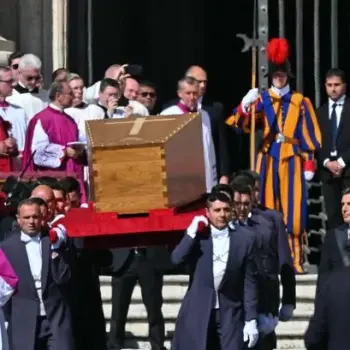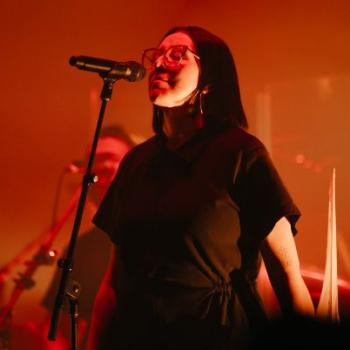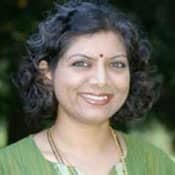My friend Rev. Bob Cornwall, pastor of the Disciples of Christ Central Woodward Christian Church and Convener of the Troy-area Interfaith Group, recently posted an essay on his blog entitled "Rules, Regulations, and the Christian Life—A Lectionary Reflection." In it, he brings up something with which I agree: ". . . some of the political talk reflects theological perspectives." Given the current political climate and the polarization along party lines, I wonder if there is an inherent challenge to being a person of faith engaged in the political arena and also creating a space for dialogue and compromise.
I found myself wondering how my fellow Indian-Americans—mostly Dharmic-tradition followers, the majority of whom are Hindu—deal with religion and politics. Two recent articles about my ethnic community highlighted issues of choice, and which of the two political parties we would align ourselves with, but without really considering the theological underpinnings of the Indian-American community.
Consider the American Enterprise Institute's Sadanand Dhume, whose recent article seeks to answer the question, "What Is the Natural Political Home of Indian-Americans?" While Dhume discusses the support that then-candidate Obama received from the largely-Hindu Indian-American community in 2008, he declares, "Interests, values, and history all suggest that the natural political home for Indian-Americans is the GOP." According to a Pew Research Center survey, 65 percent of the 2.85 million-strong community self-identifies as Democratic or Democratic-leaning, and 84 percent voted for President Obama.
Mr. Dhume contrasts the Democrats, whom he classifies as "the party of food stamps, affirmative action, and welfare without work," to what he sees as the common factors between Republican ideals and this minority community with an approximately 50-year presence in the electorate. His laundry list of what the mostly Dharmic community and Republican party share: family and social values (children born to unwed mothers—over 37 percent nationally, under 3 percent in the Indian-American community); seeking to work with India (former President George W. Bush was the first to back a civilian nuclear accord between India and the U.S.); or the threat to democracy and pluralism from radical Islam's resurgence. He also explains how Christian-converts and Republican-party stars Bobby Jindal and Nikki Haley may not send a welcoming message to the largely Hindu and Sikh Indian-American community. Dhume's argument is logical, clear, and well thought-out, but doesn't explain if there is any link between a preference for the Republican Party and a Dharmic political agenda.
In response to Dhume, Lakshmi Chaudhry and Sandip Roy explain why "Indian-Americans Heart Obama." They quote Sikh-American Valerie Kaur on how the Republican Party "caved to fear-mongering, racial profiling and expansive federal power," and point out that "in the aftermath of 9/11 and the rise of the Tea Party, the GOP is increasingly perceived as the party of the flag-waving, anti-foreigner white male American." Roy and Chaudry focus on how tolerance and acceptance of people of different religions and races is something important to the Indian-American minority, who are both racially and religiously diverse, but don't really address the fact that for many Hindus, Hindu and Indian identity can often be interchangeable.
My experience is that Hindu or Indian Americans cannot collectively be classified as Republican or Democrat; an individual's understanding of what it means to be Hindu and Hinduism's theological underpinnings will drive which party he or she identifies with. Each Hindu has their own understanding of dharma, the concept that defines what they consider just, whether it is about the wars our nation wages, or providing healthcare that takes into account a woman's right to choose or makes abortion illegal.
Within the Indian-American community, there are factors that influence political choice that have to do not only with one's religious beliefs, but that of those within the larger ethnic community. Indian-Americans vary in their perception of Muslims and the threat of terrorism, as "one of us" or "one of them," depending on personal experience. Are they Muslim themselves? Are they survivors of or related to survivors of Partition, where the British colonizers divided India and Pakistan? Are they shut out of interfaith dialogue because of an exclusive Abrahamic coalition? Hindu-American interaction with other religious minorities within the South Asian community is also colored by personal stories: their awareness of the 1984 backlash against Sikhs in the aftermath of Indira Gandhi's assassination by her Sikh bodyguards, or whether the Sikhs they know are supporters of the Khalistan movement.





